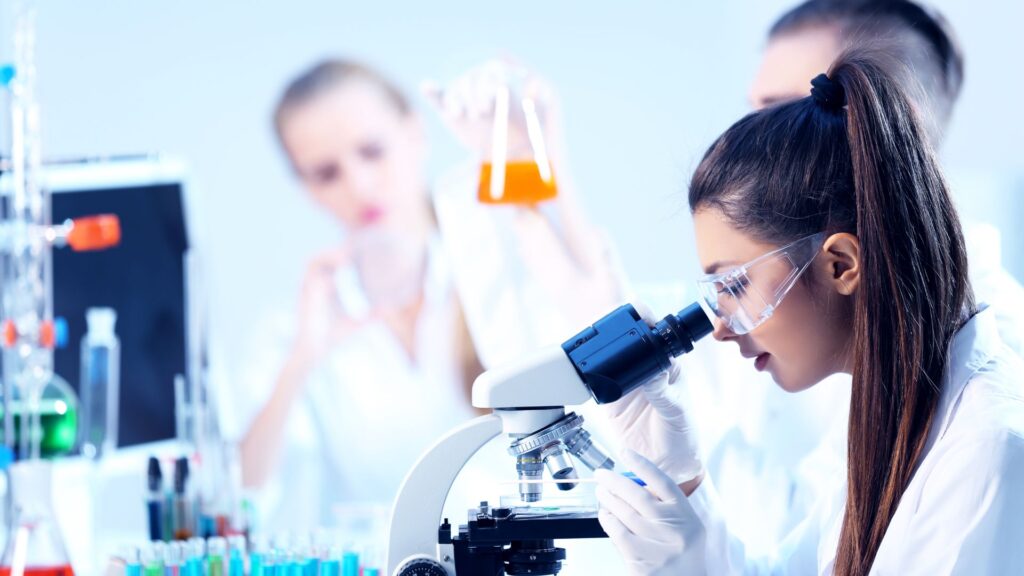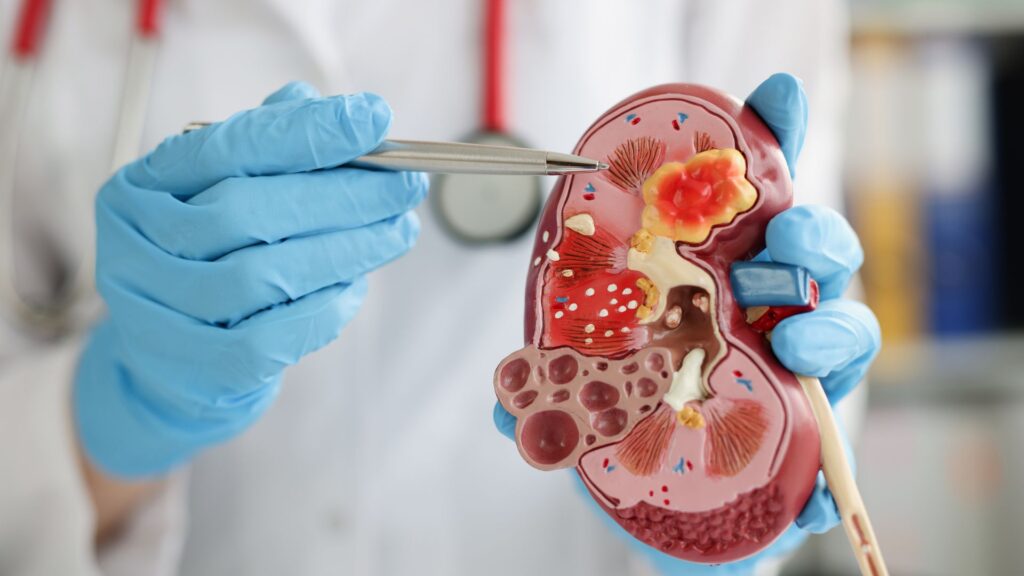Nursing

GNM
Pass in 10+2 or equivalent examination with any subjects.
Foreign nationals: (Including Nepali, Bangladeshi, Bhutani and Tibetan Refugee) for admission to Diploma Nursing (GNM) programme candidates should have qualified 12th standard obtained by association of Indian University /Institution/ Council or equivalent.
Course Duration: 3.5 Years
GNM is a three-and-a-half-year nursing program (including internship) that focuses on developing nursing skills, knowledge, and attitudes required for patient care. It is an essential component of healthcare education and plays a crucial role in the healthcare industry.
The GNM curriculum typically covers a wide range of subjects, including anatomy, physiology, pharmacology, medical-surgical nursing, pediatric nursing, psychiatric nursing, community health nursing, and midwifery. Students learn about various aspects of patient care, from administering medications to providing emotional support.
GNM graduates can pursue various career paths in healthcare. They can work in hospitals, nursing homes, clinics, schools, and community health centers. They may also choose to specialize in areas such as critical care nursing, pediatric nursing, or psychiatric nursing.

B.SC Nursing
10+2 with 50% marks in science subjects (Physics, Chemistry, Biology – Botany / Zoology).
If belonging to a SC/ST should have obtained not less than 40% of the total marks in science subjects.
Completed 17 years of age at the time of admission or will complete this age on or before 31st December of the year of admission.
Course Durarion: 4 Years
B.Sc Nursing is a four-year undergraduate program designed to prepare individuals for a career in nursing. This program combines theoretical knowledge with hands-on clinical experience to train competent and skilled nurses.
The curriculum includes a wide range of subjects, such as anatomy, physiology, pharmacology, medical-surgical nursing, pediatric nursing, psychiatric nursing, community health nursing, and nursing research. Students learn about healthcare ethics, patient care techniques, and nursing management.
A B.Sc Nursing degree offers diverse and rewarding career opportunities in healthcare. Graduates can work as Registered Nurses (RNs) in hospitals, clinics, and long-term care facilities, providing direct patient care. Specializations like pediatric, critical care, or psychiatric nursing are options. Nurse educators teach in nursing schools, while nurse managers oversee healthcare units. Research roles contribute to medical advancements, and public health nurses focus on community wellness. Travel nursing allows for exploration, while global health initiatives offer humanitarian work. With ever-increasing demand for healthcare professionals, B.Sc Nursing opens doors to stable, impactful, and fulfilling careers in various healthcare settings, making it a versatile and valuable degree.
Pharmacy

B. Pharma
Eligibility: Candidates must have completed 10+2 with Physics, Chemistry, and Biology with a minimum of 50% aggregate marks.
Duration: 4 years
The 4-year B. Pharma program provides in-depth knowledge of pharmaceutical sciences, including drug formulation, manufacturing, and quality control. With a focus on subjects like Pharmaceutical Chemistry and Pharmacology, it prepares students for careers in the pharmaceutical industry.
- Year 1: Human Anatomy & Physiology, Pharmaceutical Analysis, Pharmaceutics, Pharmaceutical Inorganic Chemistry
- Year 2: Pharmaceutical Organic Chemistry, Physical Pharmaceutics, Pharmaceutical Microbiology, Pathophysiology
- Year 3: Medicinal Chemistry, Pharmacology, Pharmacognosy, Pharmaceutical Biotechnology
- Year 4: Clinical Pharmacy, Biopharmaceutics, Pharmaceutical Regulatory Science, Quality Assurance
This curriculum combines theoretical knowledge with practical laboratory experience to ensure a well-rounded education in pharmaceutical sciences.
Graduates of the B. Pharma program can pursue a variety of career paths, including:
- Pharmacist: Dispensing medications and providing healthcare advice.
- Research Scientist: Conducting pharmaceutical research and development.
- Quality Control Manager: Ensuring the quality and safety of pharmaceutical products.
- Drug Inspector: Overseeing the compliance of drug manufacturing and distribution.
- Medical Representative: Promoting pharmaceutical products to healthcare professionals.
- Regulatory Affairs Specialist: Managing regulatory submissions and compliance.

B. Pharma Lateral
- Eligibility: Candidates must have completed a Diploma in Pharmacy (D. Pharma) with a minimum of 50% aggregate marks.
- Duration: 3 years
The 3-year B. Pharma Lateral Entry program is designed for D. Pharma graduates to advance their knowledge and skills in pharmaceutical sciences. It provides an accelerated pathway covering drug formulation, manufacturing, quality control, and regulatory affairs. Students receive hands-on training and theoretical education to prepare for advanced roles in the pharmaceutical industry.
- Year 2: Pharmaceutical Organic Chemistry, Physical Pharmaceutics, Pharmaceutical Microbiology, Pathophysiology
- Year 3: Medicinal Chemistry, Pharmacology, Pharmacognosy, Pharmaceutical Biotechnology
- Year 4: Clinical Pharmacy, Biopharmaceutics, Pharmaceutical Regulatory Science, Quality Assurance
The curriculum is structured to provide an advanced understanding of pharmaceutical sciences, integrating both theoretical knowledge and practical laboratory experience.
Graduates of the B. Pharma Lateral Entry program can pursue various career opportunities, including:
- Pharmacist: Dispensing medications and advising patients on drug use.
- Research Scientist: Engaging in pharmaceutical research and drug development.
- Quality Control Manager: Overseeing the quality assurance processes in pharmaceutical manufacturing.
- Drug Inspector: Ensuring compliance with regulations in drug production and distribution.
- Medical Representative: Promoting pharmaceutical products to healthcare professionals.
- Regulatory Affairs Specialist: Managing regulatory compliance and submissions for pharmaceutical products.
ALLIED HEALTH SCIENCES

B.SC MLT
- Eligibility: Candidates must have completed 10+2 with Physics, Chemistry, and Biology/Mathematics with a minimum of 50% aggregate marks.
- Duration: 4 years
The 4-year B.Sc Medical Laboratory Technology (MLT) program equips students with essential skills in laboratory techniques and diagnostics. Through a comprehensive curriculum, students gain proficiency in areas such as Clinical Biochemistry, Microbiology, Hematology, and Pathology. Practical training in modern laboratories prepares graduates for careers as competent lab technicians and researchers in healthcare settings.
- Year 1: Anatomy and Physiology, Biochemistry, Basic Microbiology, Clinical Pathology
- Year 2: Hematology, Histopathology, Clinical Biochemistry, Immunology
- Year 3: Medical Microbiology, Genetics and Molecular Biology, Immunohematology, Biostatistics
- Year 4: Clinical Training, Research Methodology, Lab Management, Internship
The curriculum blends theoretical knowledge with practical training in various disciplines of medical laboratory technology, preparing students for roles in diagnostic laboratories and healthcare facilities.
Graduates of the B.Sc Medical Laboratory Technology program can pursue diverse career paths, including:
- Medical Laboratory Technologist: Performing laboratory tests and analyses in hospitals and diagnostic centers.
- Clinical Lab Scientist: Conducting research and developing new laboratory techniques.
- Pathology Technician: Assisting pathologists in diagnosing diseases through laboratory tests.
- Blood Bank Technician: Managing blood products and ensuring their safety for transfusion.
- Public Health Lab Technician: Contributing to disease control and prevention efforts in public health laboratories.
- Research Assistant: Supporting scientific research in academic institutions or pharmaceutical companies.

B.SC [OT, AT]
- Eligibility: Candidates must have completed 10+2 with Physics, Chemistry, and Biology/Mathematics with a minimum of 50% aggregate marks.
- Duration: 4 years
The 4-year Bachelor of Science in Operation Theatre Technology (OT) and Anesthesia Technology (AT) program focuses on training students in surgical and anesthesia procedures. The curriculum covers topics such as surgical techniques, anesthesia administration, operation theatre management, and patient care during surgical procedures. Practical training in hospital settings prepares graduates for roles as skilled OT and AT technicians in healthcare facilities.
- Year 1: Introduction to Operation Theatre Technology, Anatomy and Physiology, Basics of Anesthesia
- Year 2: Surgical Techniques, Pharmacology, Anesthesia Equipment and Techniques
- Year 3: Operation Theatre Management, Anesthesia in Specialized Surgeries, Patient Monitoring
- Year 4: Clinical Training, Internship, Research Project
This curriculum provides comprehensive training in both Operation Theatre Technology and Anesthesia Technology, combining theoretical knowledge with practical experience to prepare students for professional roles in surgical and anesthesia departments.
Graduates of the B.Sc Operation Theatre Technology (OT) and Anesthesia Technology (AT) program can pursue various career paths, including:
- Operation Theatre Technologist: Assisting surgeons during surgical procedures and managing operation theatre equipment.
- Anesthesia Technologist: Administering anesthesia under the supervision of an anesthesiologist and monitoring patients during surgery.
- Surgical Assistant: Supporting surgeons in operating rooms by providing instruments and assisting with procedures.
- Hospital Administrator: Overseeing operation theatre operations and managing healthcare facilities.
- Clinical Research Assistant: Assisting in research studies related to surgical techniques and anesthesia practices.
- Healthcare Educator: Teaching operation theatre and anesthesia technology in educational institutions.

B.SC RENAL DIALYSIS
- Eligibility: Candidates must have completed 10+2 with Physics, Chemistry, and Biology/Mathematics with a minimum of 50% aggregate marks.
- Duration: 4 years
The 4-year Bachelor of Science in Renal Dialysis program focuses on equipping students with the knowledge and skills necessary for performing dialysis procedures. Students learn about renal anatomy, physiology, dialysis techniques, patient care, and management of dialysis equipment. Practical training in clinical settings prepares graduates to work as competent renal dialysis technologists in hospitals, dialysis centers, and healthcare facilities.
- Year 1: Anatomy and Physiology, Biochemistry, Basics of Renal Dialysis, Patient Care
- Year 2: Renal Pathophysiology, Dialysis Techniques and Procedures, Pharmacology in Dialysis
- Year 3: Complications in Dialysis, Nutrition and Dietetics in Renal Disease, Dialysis Equipment Management
- Year 4: Clinical Training, Internship, Research Project
This curriculum integrates theoretical knowledge with hands-on training in renal dialysis techniques and patient care, preparing students for careers as renal dialysis technologists in healthcare settings.
Graduates of the B.Sc Renal Dialysis program can pursue various career paths, including:
- Renal Dialysis Technologist: Performing dialysis procedures and monitoring patients in dialysis units.
- Dialysis Technician: Operating and maintaining dialysis equipment in hospitals and clinics.
- Nephrology Nurse: Assisting nephrologists in managing patients with kidney diseases and undergoing dialysis.
- Clinical Research Assistant: Supporting research studies related to renal diseases and dialysis treatments.
- Healthcare Educator: Teaching renal dialysis techniques and patient care in educational institutions.
- Dialysis Center Manager: Overseeing operations and management of dialysis centers.

BSC MIT (Medical Imaging Technology)
- Eligibility: Candidates must have completed 10+2 with Physics, Chemistry, and Biology/Mathematics with a minimum of 50% aggregate marks.
- Duration: 4 years
The 4-year Bachelor of Science in Medical Imaging Technology program focuses on training students in various imaging techniques used in medical diagnosis and treatment. Students learn about radiographic procedures, MRI, CT scan, ultrasound, and other imaging modalities. The curriculum includes theoretical knowledge and practical training in imaging technology, preparing graduates for careers as skilled medical imaging technologists in hospitals, diagnostic centers, and healthcare facilities.
- Year 1: Introduction to Medical Imaging Technology, Anatomy and Physiology, Basics of Radiography
- Year 2: Radiographic Techniques, Radiographic Physics, Patient Care and Safety in Imaging
- Year 3: MRI Imaging, CT Scan Techniques, Ultrasound Imaging, Digital Imaging
- Year 4: Clinical Training, Internship, Research Project
This curriculum provides comprehensive training in various medical imaging techniques, combining theoretical knowledge with practical experience to prepare students for professional roles as medical imaging technologists.
Graduates of the B.Sc Medical Imaging Technology program can pursue diverse career paths, including:
- Radiologic Technologist: Performing X-rays and other imaging procedures in hospitals and diagnostic centers.
- MRI Technologist: Operating MRI machines and interpreting images for diagnostic purposes.
- CT Technologist: Performing CT scans and assisting radiologists in image interpretation.
- Ultrasound Technologist: Conducting ultrasound examinations and assisting in diagnostic procedures.
- Medical Imaging Supervisor: Overseeing imaging departments and ensuring quality standards.
- Research Scientist: Conducting research in imaging technology advancements and applications.
PHYSIOTHERAPY

BPT [Bachelor of Physiotherapy]
- Eligibility: Candidates must have completed 10+2 with Physics, Chemistry, and Biology with a minimum of 50% aggregate marks.
- Duration: 4.5 years
The Bachelor of Physiotherapy (BPT) program spans 4.5 years and focuses on equipping students with the knowledge and skills necessary for physical therapy practice. The curriculum includes anatomy, physiology, biomechanics, exercise therapy, electrotherapy, and rehabilitation techniques. Students gain hands-on experience through clinical training, preparing them to work as physiotherapists in hospitals, rehabilitation centers, sports clinics, and private practice.
- Year 1: Anatomy, Physiology, Biochemistry, Psychology, Basics of Physiotherapy
- Year 2: Biomechanics, Exercise Therapy, Electrotherapy, Pharmacology, Pathology
- Year 3: Orthopedics and Sports Physiotherapy, Neurology and Neurosurgery, Cardiovascular and Respiratory Physiotherapy, Community-Based Rehabilitation, Research Methodology
- Year 4: Geriatrics and Pediatrics Physiotherapy, General Medicine and Surgery, Ethics and Professional Practice, Clinical Training and Internship
This structured curriculum blends foundational sciences with specialized physiotherapy techniques, providing students with comprehensive knowledge and practical skills for effective patient care and rehabilitation.
Graduates of the BPT program can pursue various rewarding career paths, including:
- Physiotherapist: Providing rehabilitative care in hospitals, clinics, and rehabilitation centers.
- Sports Physiotherapist: Working with athletes to prevent and treat sports-related injuries.
- Orthopedic Physiotherapist: Specializing in musculoskeletal disorders and post-operative rehabilitation.
- Neurological Physiotherapist: Helping patients recover from neurological conditions such as stroke or spinal cord injury.
- Cardiopulmonary Physiotherapist: Supporting patients with heart and lung conditions through rehabilitation programs.
- Pediatric and Geriatric Physiotherapist: Working with children or elderly patients to improve mobility and quality of life.
- Researcher or Educator: Contributing to advancements in physiotherapy practice and education.










